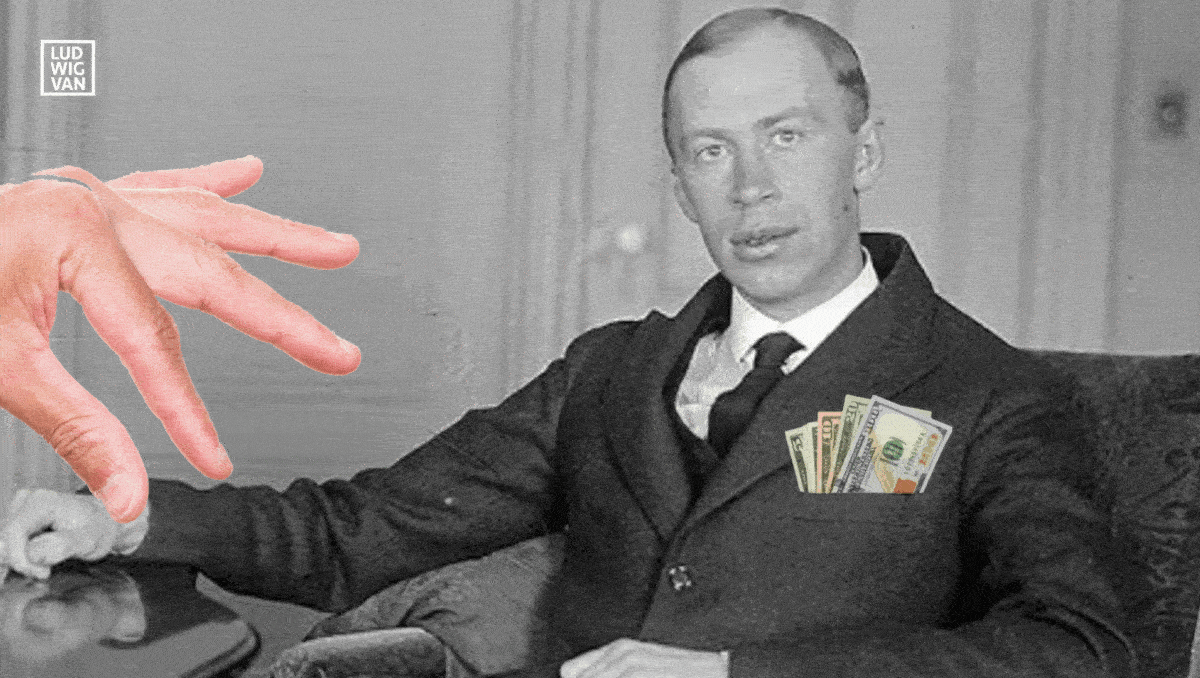
The Prokofiev Estate has issued a letter demanding that opera/orchestra/ballet companies use newly approved editions of Sergei Prokofiev’s Romeo and Juliet and Cinderella scores and obtain the necessary licenses, including the Grand Rights license for staged performances.
Is it legal?
In a word, yes. The Prokofiev Estate are the owners of the music and can dictate the terms of use, but like many legal issues, it’s complicated.
In the U.S., these ballets and any music derived from them are protected for 95 years from when they were first published, thanks to a law called the Uruguay Round Agreements Act (URAA). In other countries, the protection lasts as long as the local copyright laws allow, usually until a certain time after the last co-author has died.
They are legally protected as joint works, which means they were created by both Prokofiev and other writers (librettists), and they all share copyright ownership.
What this means
Although an organization might own older editions of the scores and parts for these ballets, G. Schirmer, Inc. and the Wise Music Group have released new editions. These new editions are now the only versions approved by the Prokofiev Estate and, therefore, must be used for all future performances.
If arts companies want to stage these ballets, they need a special type of permission called a “Grand Rights” license. This is needed whether they use live musicians or recorded music.
With live music, they need both a rental agreement for the music and a Grand Rights license. With recorded music, they only need the Grand Rights license.
Prokofiev originally gave the public performance rights to G. Schirmer, meaning they get to decide which edition of the music can be used for public performances. The American Society of Composers, Authors, and Publishers (ASCAP) can grant licenses for public performances, but only if you use the approved editions.
What this means is if you perform these works without following these rules, Wise Music Group can charge offenders retroactively, including penalty fees.
Big picture
One of the central concerns about copyright law is term extensions. These extensions effectively keep works from becoming public domain for a much longer time. This limits public access to important cultural and educational materials, and it can really stifle creativity since artists often draw inspiration from existing works. Plus, these extensions tend to benefit big companies more than individual creators, leading to monopolies and less competition.
They also make it harder and more expensive for students and researchers to access the materials they need.
There’s also the legal mess; it becomes tougher to figure out the copyright status of works, which can lead to more legal disputes. And don’t forget about historical and cultural preservation – longer copyrights can mean some works get lost over time if they’re not properly managed or made accessible.
For another interesting perspective on the matter, see here:
Read the full letter on Slippedisc.com.
- The Future of Music Collaboration: Enter Mixed Reality - July 23, 2024
- Carolina Uccelli to Receive A Modern Revival - July 8, 2024
- Pianos for Smaller Hands: The New Wave - July 3, 2024


